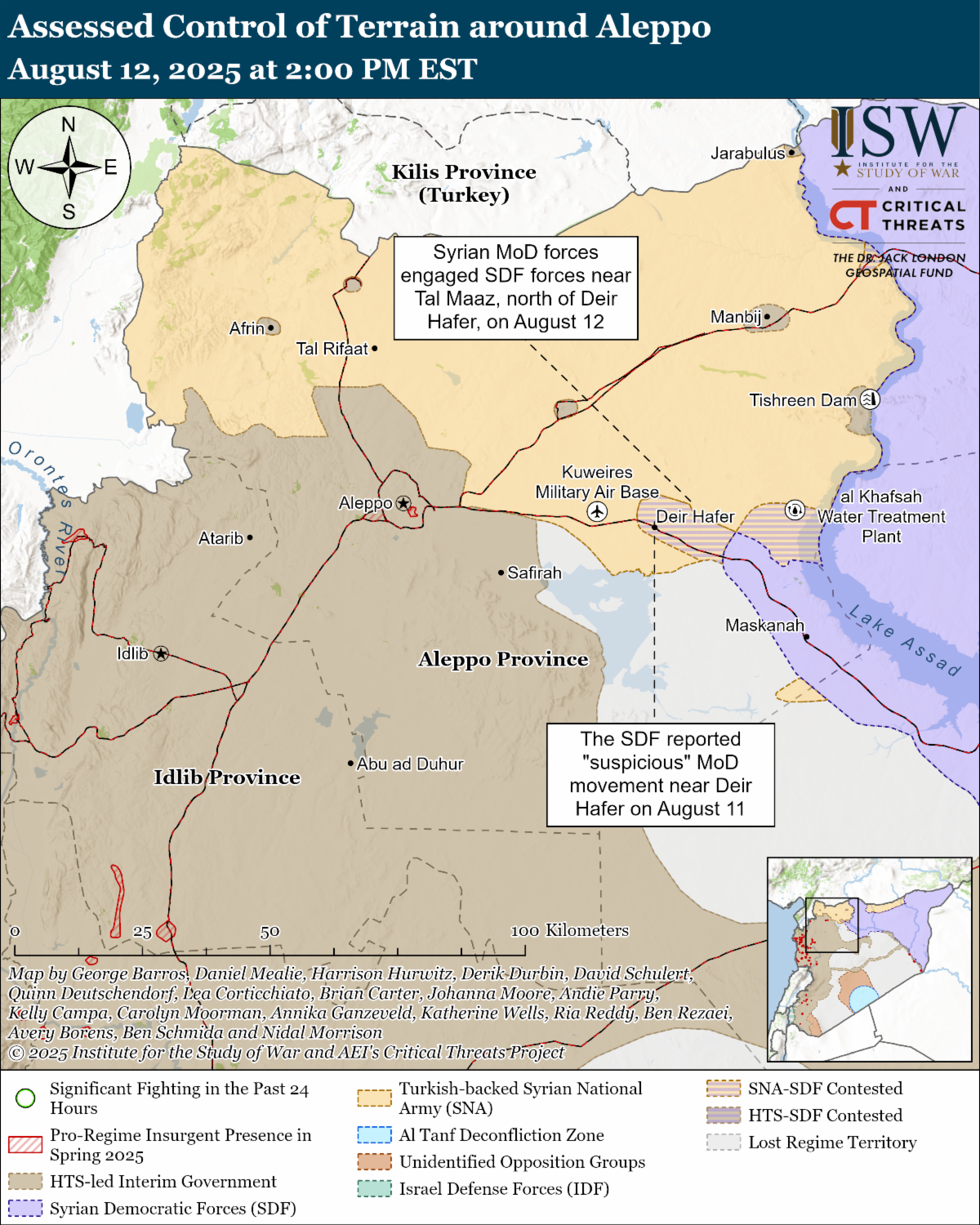Likely Hezbollah sources threatened to incite protests in Lebanon against US Special Envoy Thomas Barrack’s upcoming visit to Beirut if senior Lebanese officials do not meet with Iranian Supreme National Security Council Secretary Ali Larijani’s visit to Beirut on August 13. Lebanese officials have reportedly attempted to pressure Lebanese President Joseph Aoun and other Lebanese officials not to meet with Larijani. Lebanese media reported on August 12 that Prime Minister Nawaf Salam suggested that Lebanese officials should boycott Larijani’s visit. Lebanese Foreign Minister Youssef Rajji is reportedly continuing his “domestic and foreign contacts” in an attempt to cancel Larijani’s visit or force Iran to “offer an apology” to the Lebanese government for its recent statements in support of Hezbollah. Lebanese media also reported that anti-Hezbollah Lebanese Forces leader Samir Geagea is exerting “major pressure” on Salam to convince Aoun not to receive Larijani. Aoun has reportedly declined these requests, stating that such a move would “violate all diplomatic norms.” Several anti-Hezbollah parliamentarians similarly expressed discontent and criticized Larijani’s upcoming visit. Lebanese Forces Party parliamentarian Ziad Hawat claimed on August 11 that Iran has blatantly interfered in Lebanese politics through arming Hezbollah and inciting “resistance” in Lebanon, stating that “Iran should stay in Iran.”
Salam and Rajji’s willingness to entertain an effort to spurn Larijani during his visit demonstrates the degree to which this Lebanese government is willing to challenge inordinate Iranian influence in Lebanon. Previous Lebanese governments would have been unlikely to even entertain such a public challenge to Iran and its ally Hezbollah.
Iranian officials have strongly criticized the US proposal to oversee a transit corridor in the southern Caucasus due to Iranian fears that its adversaries and competitors seek to use the corridor to undermine Iranian security and economic interests. Armenia and Azerbaijan signed a declaration of intent on August 8 on a US-brokered peace deal that grants the United States exclusive development rights to a 27 mile corridor through southern Armenia that connects Azerbaijan to its exclave, the Nakhchivan Autonomous Region. The agreed upon corridor is fundamentally the actualization of the Zangezur Corridor—a Turkish and Azerbaijani-proposed transit route that would connect Azerbaijan to Nakhchivan. Iran has historically opposed the Zangezur Corridor and viewed it as an effort to economically sideline Iran and limit Iranian regional influence. A senior adviser to the Supreme Leader emphasized Iran's strong opposition to the proposed transit corridor on August 9 and referred to it as a "political conspiracy" against Iran. An Iranian analyst close to the regime similarly characterized the proposed transit corridor as an Iranian “containment belt” meant to isolate Iran and threaten Iran’s security. The corridor runs along Iran's only shared border with Armenia and would sever Iranian land access to Russia and Europe via Armenia, which could exclude Iran from a new international transit route and hinder Iranian efforts to become a major transit hub. The corridor would enable Azerbaijan to circumvent Iran to access the Nakhchivan Autonomy Republic, which will likely deprive Iran of political leverage and any associated revenue along the transit corridor. Azerbaijan currently accesses its exclave and Turkey through Iran. | 




 [ISW] 러시아 공세 캠페인 평가, 2025년 8월 12일
[ISW] 러시아 공세 캠페인 평가, 2025년 8월 12일
 [ISW] 러시아 점령 업데이트, 2025년 8월 12일
[ISW] 러시아 점령 업데이트, 2025년 8월 12일


















